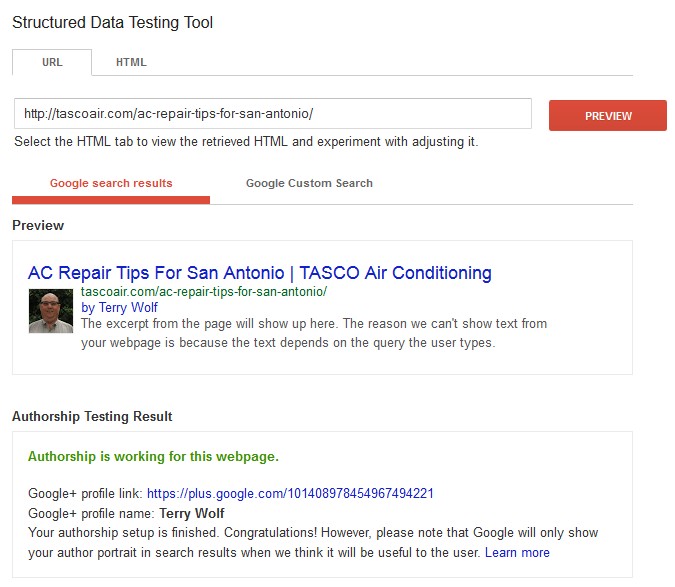Content publishers need to gain more credibility and small businesses now have a bigger incentive to improve their visibility online. Many reputable authors and publishers are trying several different strategies in 2014 in a bid to stay ahead of Google search changes. Perhaps the proliferation of author photos in search results grabbed the attention of SEOs. The online content and search engine optimization crowd are finally learning after years of many failed businesses, obsolete business plans, and wasted effort is that which was evident even from the very start: because it is Google’s game, Google makes the rules. What’s more is that Google will either explicitly tell you what they are looking for in terms of serving quality search results or strongly suggest for or against a work effort. For a long while in 2013, authorship wasn’t the primary concern when it came to content; unless you had a strategic thinker as our SEO. Some organizations didn’t incorporate the simple meta tags and make use of Google’s free platforms. Others continued to produce as much content necessary to catapult their pages and the pages of those they represented to the top, and not focus on the quality of authorship.
In 2014 the game has yet again changed and authorship is on the lips and in the thoughts of the industry’s leading professionals. This is not to say we weren’t discussing authorship tags and rank last year. We simply didn’t have the data to support any major investments in new search models.
In part because Google is A/B testing a way to reduce backlinking weight in search engine results page (SERP), many proactive marketers and small businesses are looking more deeply into their company’s valuation of authorship. With the higher-ups at Google seemingly aiming for authorship and credibility to drive search results, much attention is being paid to Google’s take on the concept, which is called Google Authorship.
Authorship is a way for authors to own their content and to seek a leg up when their articles populate search results. Even in your personal searches you may have come across Google Authorship efforts; they are the articles that appear first and are accompanied by pictures of the author and their Google+ information. As a searcher, you may have understood how this authorship attribution helped convey an aura of expertise around the author, with both their picture and their high search rank clear from the very first search page. Search engine optimization professionals have long understood that Google has done everything in their power to weed out automatic posts, automatic links, anonymous content, and the like, but their movement toward a more defined authorship standard has once again changed the landscape of the industry. Some industry pros have wondered where Google+ factors in to the authorship consideration, but it isn’t hard to fathom that, in Google’s shift to focus on authorship, its proprietary social network would carry the most weight in determining an author’s status and placement. With the new focus on authorship, the search engine optimization field is poised to pivot again.
For a long while in 2013, authorship wasn’t the primary concern when it came to content; unless you had a strategic thinker as our SEO. Some organizations didn’t incorporate the simple meta tags and make use of Google’s free platforms. Others continued to produce as much content necessary to catapult their pages and the pages of those they represented to the top, and not focus on the quality of authorship.
In 2014 the game has yet again changed and authorship is on the lips and in the thoughts of the industry’s leading professionals. This is not to say we weren’t discussing authorship tags and rank last year. We simply didn’t have the data to support any major investments in new search models.
In part because Google is A/B testing a way to reduce backlinking weight in search engine results page (SERP), many proactive marketers and small businesses are looking more deeply into their company’s valuation of authorship. With the higher-ups at Google seemingly aiming for authorship and credibility to drive search results, much attention is being paid to Google’s take on the concept, which is called Google Authorship.
Authorship is a way for authors to own their content and to seek a leg up when their articles populate search results. Even in your personal searches you may have come across Google Authorship efforts; they are the articles that appear first and are accompanied by pictures of the author and their Google+ information. As a searcher, you may have understood how this authorship attribution helped convey an aura of expertise around the author, with both their picture and their high search rank clear from the very first search page. Search engine optimization professionals have long understood that Google has done everything in their power to weed out automatic posts, automatic links, anonymous content, and the like, but their movement toward a more defined authorship standard has once again changed the landscape of the industry. Some industry pros have wondered where Google+ factors in to the authorship consideration, but it isn’t hard to fathom that, in Google’s shift to focus on authorship, its proprietary social network would carry the most weight in determining an author’s status and placement. With the new focus on authorship, the search engine optimization field is poised to pivot again.





